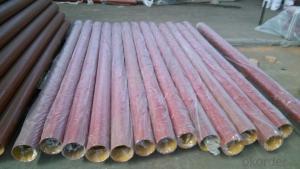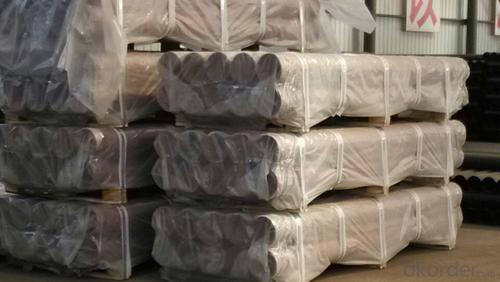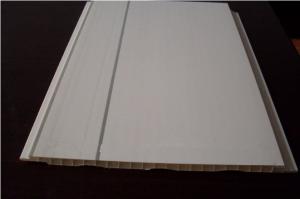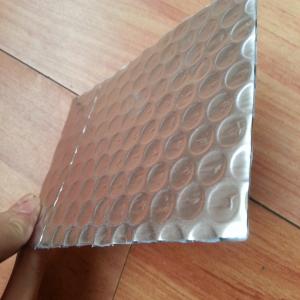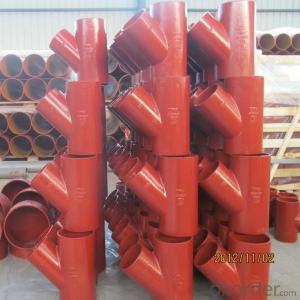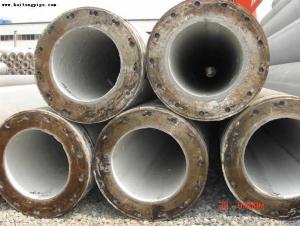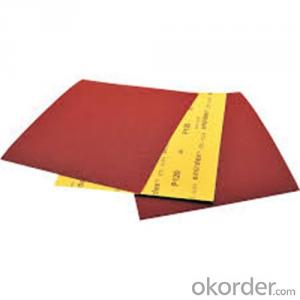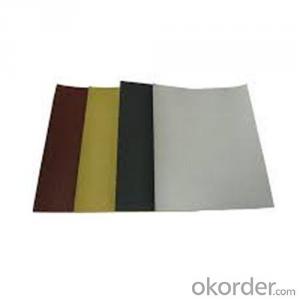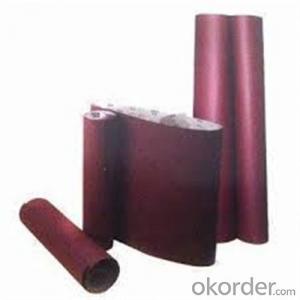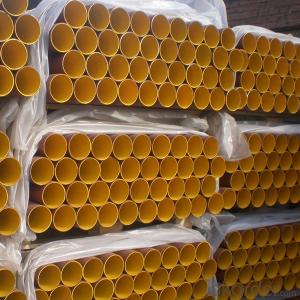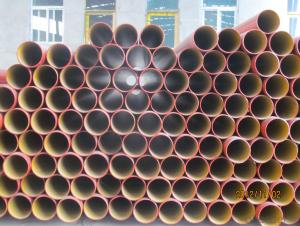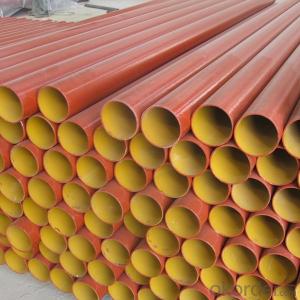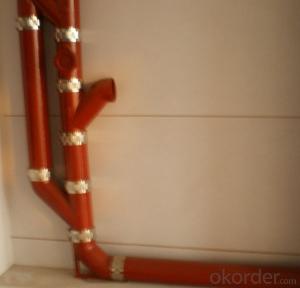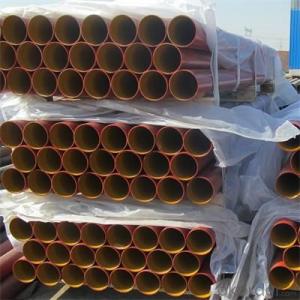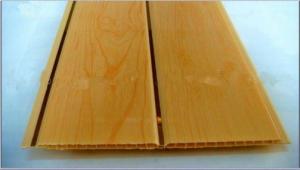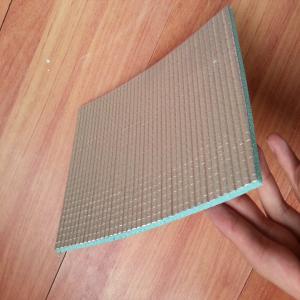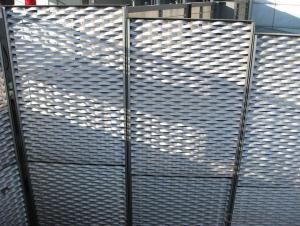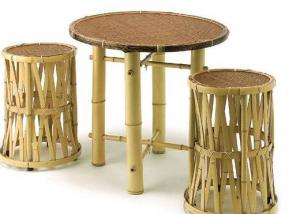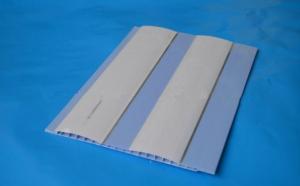EPOXY CAST IRON DRAINAGE SYSTEM PIPE
- Loading Port:
- China Main Port
- Payment Terms:
- TT OR LC
- Min Order Qty:
- -
- Supply Capability:
- -
OKorder Service Pledge
OKorder Financial Service
You Might Also Like
Made from 100% recyclable materials, CMAX epoxy cast iron pipe systems are not only environmental friendly, but also satisfy many properties necessary to withstand the aggressive conditions both internal and external of the pipes and fittings: these properties include its excellent resistance to abrasion, corrosion, impact and fire. CMAX also has low noise transmission compared to common UPVC drainage pipe systems. CMAX is designed as long lasting building materials.
Standard:
CMAX epoxy cast iron pipe systems with nominal size between 40-300mm comply with BS EN 877.BS EN 877 guarantees the quality of the materials, dimensions and tolerances, mechanical properties(like water pressure, tensile strength and brinell hardness) appearance, and the standard coating for the epoxy cast iron pipes, fittings and couplings.
Strength:
Iron is well known for its strength and abrasion resistance. The shape and impact strength of CMAX products are unchanged under exposure of sunlight and weathering, while UPVC and PVC pipes would soften, deform and become brittle under intense temperature change.
Quiet:
CMAX’s sturdy and dense properties reduce pipe vibration a silent drainage system.Studies had proven iron is the quietest material out of all other common drainage system.
Non-Toxic and Non-Combustile:
No toxic gas will be emitted from CMAX in the event of fire. Iron is also non-combustile,so epoxy cast iron pipes and fittings are recoverable after fire.
Anti-Corrosive:
All CMAX epoxy cast iron pipes and fittings are internally and externally finished with corrosive resistant epoxy coating to prevent fouling and corrosion. The epoxy on CMAX epoxy cast iron pipes and fittings provides an excellent exterior under humid and tropical conditions.
- Q: I want to be a real estate investor for rental properties. Ive been working at different jobs and none of it interests me. I want to be working in the field somehow and get some experience. I am 17 right now and completely clueless as I would get into the industry even at 18 which is just months away. A job as a secretary in an office would be fine I just desperately want to get a real job away from the fast food and retail industry. Thanks for any advice:)
- A real estate investor is someone who buys properties, and either renovates them to sell for profit, or rents them out for profit. You need to save a lot of money first to begin investing in property, This is not a job in the real estate industry! If you actually want to become a real estate agent - that is someone who works in the industry, go to your local real estate agency and ask for advice on how to get started.
- Q: I have a job interview to become a real estate agent. It's supposed to be flexible hours and I can work part time. Since I like learning new things and improving my resume, I want to give it a try. I will be working a regular job and I am planning to make real estate part time for now. My question is beside the flyers, signs, cards, and possibly the school cost, is there anything I can lose (beside time depending how you look at it)? I am interested in learning in real estate even if I don't make enough profit since it's commission pay as far as I know.
- YOu will need to pay for access tot he MLS, You will have to pay E&O insurance (Although many brokers will take that out of your commission for each transaction)
- Q: My bf is 24 and wants to get into real estate, should he continue to get into it?
- I assume you are talking about him becoming a real estate agent. It is a good job. However, there is no health insurance, you have to pay your own taxes, there is no 401 k plans, no insurance of any type. You are an independent contractor, and as such, you choose your own hours and everything else. But that takes discipline which someone at 24 may not have. You also may want to tell him he will need to have at least 6 months of income saved up, because it takes about that long to show any income after the initial r.e. classes, which are mandatory to become an agent in any state. Good luck!
- Q: Is it a law for a real estate agent to tell a consumer about abnormal activity (whether it's witnessed themselves or by the previous owners) within the house? If so, is it the same law or code throughout the U.S. or does it only apply to certain states?
- Real Estate agent has obligation to disclose everything they know about the house. If the owner never told the agent, then, the agent is not obligted to investigate. It applies to everything even for water leak, etc. If everybody denies knowing about it, then, the buyer is stuck with it.
- Q: How much do they cost.... What if I have a very broad area in which I would like to look at homes in.... What if I don't end up finding a home for a while.... How do I find the right agent..... Any information on real estate agents would be appreciated, but emphasis on the specific questions above.
- If you need a Realtor in the State of Florida. Please contact me: I work Residential Commercial Real Estate. Thanks! :) Grace C. Rodriguez PA with: AB Realty LLC
- Q: I have a few thousand saved up, I am in the military and was wondering if I could do this part time. Whether it be by purchasing a foreclosed home an renting it out, or working for a broker when I end my contract. I have an opportunity to go to college online and I am also wondering what would be a good degree to aid me in the long run in this field. What would you guys recommend? I have no family in the field and do not know anyone who has experience in the field either. Do folks normally have the money required (if they opt on flipping homes) or are loans taken out for the rookie? I live in NC but if I were to get out the military I'd be moving back to New Jersey.... expensive state along with its real estate. If I were to decide in flipping over working for a broker, how much should I have saved up? Thanks in advance.
- Get your real estate broker with 100% commission or one that will send leads to you. After you get a feel for what is a good and bad deal. Then buy
- Q: I have been thinking about getting my real estate license... but I want to know if it's a bad time to get it right now. I live in Dallas. I don't want to spend the money on getting my license and not make any money.
- well my aunt does Real Estate, but this is in Louisiana. She`s motivated and great at it. She was doing wonderful, and enjoys it. Lately it has been slow for her, and she is pulling another job( she makes good money doing this, so i dont see the point in her having another job) she says it`s just been much slower than usual. Well good luck!
- Q: should I take real estate classes to learn about real estate before I start flipping houses? I would like to buy, sale or rent houses
- adequate, that is my PERSONAL opinion. right here is going: i could propose going for the bachelors. the revenue you have got now isn't terrible, however you might do SO MUCH BETTER with a 4 yr measure. and i am not announcing you must preserve schooling with masters or reputable reports- simply the bachelors measure. and you are going to be capable to avoid wasting up a lot more with the money you're making accordingly of your longer schooling. you are going to be capable to find the money for a good greater condo than you're on account that buying now. believe me- getting the bachelors is an high-quality notion.
- Q: MLM has the following properties1. Multiple levels of experience, expertise, and management, like any business.2. Always promises good pay, even to beginners3. Selling something overpriced4. Commissions are split, and the people on top make more doing less5. Takes time to build your network/customer baseIs that an accurate description of MLM/pyramid scheme, and does real estate differ much from this business model?
- Is real estate essentially MLM? MLM has the following properties piece of cake to answer, as I am an avid enemy of MLM and author on it and am also a RE broker; [one RE brokerage is under investigation for permiting something like MLM for its agents] 1. Multiple levels of experience, expertise, and management, like any business. --expertise, yes, mgt no; one manager; the listing broker. 2. Always promises good pay, even to beginners --it promises nothing but a fiduciary relationship to the seller. --------------- 3. Selling something overpriced ---Fed lending laws require Fed insured loans to have neutral appraisals on all property being sold. The buyer then can choose to buy at the appraised value or risk paying more. Those who are not getting financing are smart to use their own appraisers and not to pay above FMV; fair market value. --------- 4. Commissions are split, and the people on top make more doing less --there are 2 types of offices, split commission and 100% offices where there are desk fees. There is NO ONE on top. Agents are not employees. Their brokers are not their bosses but their contractors. ------------[many agents make much more than their brokers!] 5. Takes time to build your network/customer base --this is a positive, not a negative. and it applies to every business on earth. ----------- Is that an accurate description of MLM/pyramid scheme, and does real estate differ much from this business model? -----------they have no similarity whatever. ONE RE office Keller williams is trying to bring that form into their office and when asked about commissions being earned by agents not related to a transaction, the office must convert the fees to profit sharing to keep from commiting a felony. IN profit sharing, all participants are equity owners. ------------ In mlm, there is no equity for anyone.
- Q: I thinking to study accounting in college.I would like to do real estate business by myself and I'm not sure if accounting career can fit with my future.What's your opinion? I want to buy properties to rent.
- Accounting okorder / (or a similar one in your area) to learn the insider secrets of the business.
Send your message to us
EPOXY CAST IRON DRAINAGE SYSTEM PIPE
- Loading Port:
- China Main Port
- Payment Terms:
- TT OR LC
- Min Order Qty:
- -
- Supply Capability:
- -
OKorder Service Pledge
OKorder Financial Service
Similar products
Hot products
Hot Searches
Related keywords

